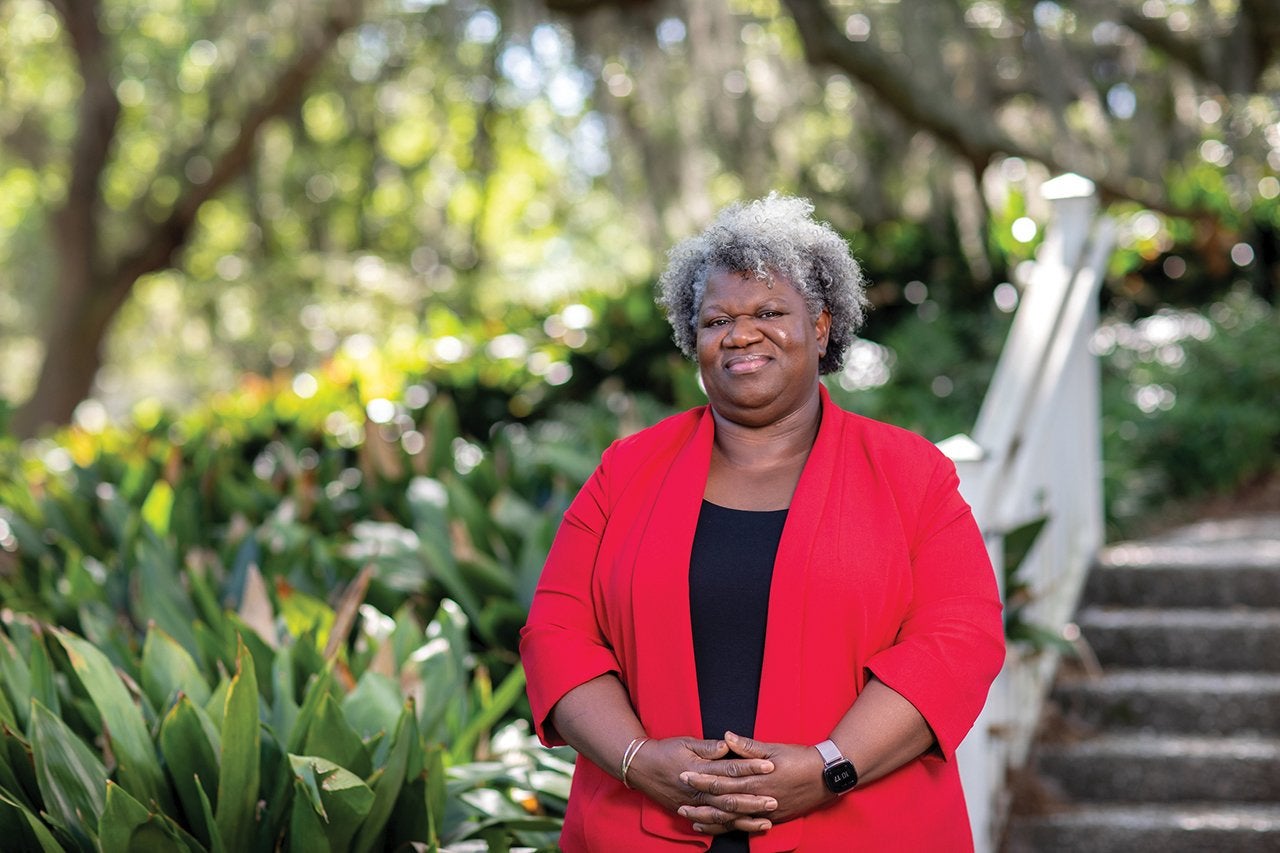Caped crusaders come in all types. Take Jennie Stephens ’89 (M.P.A. ’94), for instance. For the past 17 years at the Center for Heirs’ Property Preservation in North Charleston, she has made it her mission to educate people about land ownership.
“Every morning,” she says, “it feels like I’m putting on my superhero cape because I know the work we do at the center has meaningful impact.”
Heirs’ property is land that has been passed down through generations without a will and is owned in common by multiple heirs.
“Numerous families who possess heirs’ property lack access to the necessary resources to resolve the title to their land,” says Stephens, who received her B.A. in business administration from the College and then returned a few years later for a Master of Public Administration. “I consider the center to be one of those crucial resources.”
Education is at the heart of the center’s mission. This work falls into three buckets: prevention, resolution and land utilization. The center offers free seminars and legal services to prevent the loss of property and to improve communication among family members.
“Nine times out of 10, if there is an issue with resolving titles, it has nothing to do with the land,” explains Stephens. “It has to do with a family dynamic that was never addressed.”
The goal of the center is to safeguard heirs’ property and advance the sustainable use of land so that families can reap the economic benefits. In 2013, with support from the U.S. Endowment for Forestry and Communities, Stephens and her team developed the Sustainable Forestry Program, a unique partnership between foresters and lawyers.
The forest products industry generates $23 billion for the state’s economy annually, according to the South Carolina Forestry Commission. A clear title that includes forests gives family members the opportunity to get a slice of that pie, break the cycle of poverty and establish generational wealth.
It’s an industry Stephens is familiar with since paper manufacturer Westvaco owned all the land that surrounded the rural area of Walterboro, South Carolina, where she grew up. But she never thought of forestry as a career because she wanted to help people.
“I love serving folks,” says Stephens, who’s a member of CofC’s M.P.A. Advisory Committee. “And when I say serve, I mean helping them find the right path to achieve their visions.”
As CEO of the center, Stephens has grown the organization from a small nonprofit with three employees providing legal services in four counties to an organization of nearly 40 individuals working in 25 counties across the state.
But it’s not just a South Carolina issue. This issue of heirs’ property affects communities throughout the country, such as Native Americans and those who live in Appalachia. Over the coming years, Stephens envisions the center expanding its reach to include Mississippi, Alabama, Texas, Kentucky and West Virginia.
“We aim to establish either initiatives for heirs’ property or additional centers like ours that provide legal services to aid these historically underserved landowners by preventing and resolving heirs’ property,” she says.




